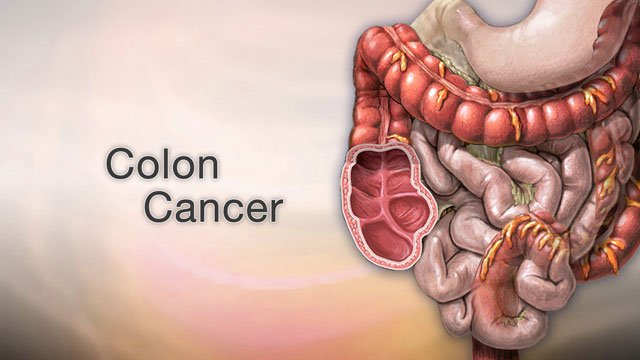Introduction to Colon Cancer
Colon cancer, also sometimes called colorectal cancer, is cancer that starts in the large intestine or rectum. The colon is the final part of the digestive system, responsible for absorbing water and nutrients from food as well as forming, storing and eliminating waste. It is one of the most common cancers, affecting many people each year in India. Fortunately, this cancer is very treatable if caught early. Understanding the symptoms, risk factors and treatment options is key for prevention and survival. In this cancer, the medical oncologist in mumbai determines the stage of the cancer based on tests and imaging. They then decide on the best treatment plan, which may include surgery, chemotherapy, radiation therapy, or targeted therapies.

Symptoms of Colon Cancer
Colon cancer often starts with no symptoms at all, which is why regular screening is so important. As the cancer progresses, symptoms can include:
- Changes in bowel habits – This may include constipation, diarrhoea, narrower than normal stools, or a feeling that the bowel is not empty after going to the bathroom. Traces of blood in or on the stool are also common.
- Persistent abdominal discomfort – Cramping, bloating, gas or pain that does not resolve may signal a problem. Pain may be colicky (comes and goes) or may be constant. Pain is more common with rectal cancer.
- Unexplained weight loss – Losing weight without trying can be an early sign of cancer. This occurs as the body’s energy stores and fat decrease.
- Fatigue or weakness – Cancer uses up the body’s energy. Along with unexplained weight loss, unusual tiredness or weakness may indicate cancer.
- Anaemia – Cancer in the colon can lead to internal blood loss that the body cannot compensate for. Anaemia, which is a low red blood cell count, causes weakness, fatigue and sometimes shortness of breath.
If you experience any persistent gastrointestinal symptoms, do not wait to see if they resolve on their own. Make an appointment with your doctor for evaluation and testing.
Risk Factors for Colon Cancer
While anyone can develop cancer, certain factors increase risk:
- Age over 50 – More than 90% of people diagnosed are over age 50.
- Personal history of colorectal cancer or precancerous polyps – Having a previous diagnosis of colon or rectal cancer puts you at higher risk for developing new cancers in another area of the colon.
- Family history of colorectal cancer – Having a first-degree relative (parent, sibling or child) with cancer increases your risk up to 2-3 times that of the general population. Risk increases if more than one first-degree relative has cancer.
- Inherited syndromes – Several genetic disorders passed through families can significantly increase this cancer risk. These include familial adenomatous polyposis and Lynch syndrome.
- Inflammatory intestinal conditions – Chronic inflammation in Crohn’s disease or ulcerative colitis raises this cancer risk.
- Type 2 diabetes – People with diabetes have up to a 40% increased risk of developing colon cancer.
- Obesity – Carrying excess weight, especially abdominal fat, is linked to higher cancer risk.
- Smoking – Long-term cigarette smoking doubles cancer risk compared to non-smokers. Quitting can significantly reduce this risk over time.
- Alcohol use – Drinking 3 or more alcoholic beverages per day also raises colon cancer risk.
- Sedentary lifestyle – Being inactive is associated with increased colon cancer risk. Exercise helps lower risk.
- Low fibre, high red meat diet – Eating diets high in red or processed meats and low in fruits, vegetables and whole grains is a modifiable risk factor.
Colon Cancer Treatment Options
If caught at an early stage while still localized, colon cancer has a 90% 5-year survival rate. Once it has metastasized or spread to distant organs, survival rates are closer to 14%. Early screening and knowing symptoms are vital. At HCG Hospital Borivali Mumbai Treatment options depend on the stage and include:
- Polypectomy – Precancerous polyps can be removed during a colonoscopy before they turn cancerous. This prevents cancer.
- Surgery – In early-stage colon cancer, surgery to remove the tumour and affected section of the colon offers the best chance for a cure. Nearby lymph nodes are also removed and tested. Additional chemotherapy is sometimes needed after surgery if cancer has spread to the lymph nodes.
- Chemotherapy – Chemotherapy uses cytotoxic drugs to kill cancer cells. It may be used after surgery to eliminate any remaining cells, or as the primary treatment if cancer has spread too far to be removed surgically.
- Radiation Therapy – Radiation is used to shrink tumours before surgery or destroy cancer cells remaining after surgery. It is sometimes used to relieve symptoms in advanced cancer when the tumour cannot be removed.
- Targeted Therapy – In this newer treatment, medications target specific genes or proteins found in cancer cells to disable the processes that allow them to grow and spread. It is used alone or combined with chemotherapy.
- Immunotherapy – Immunotherapy agents enhance the body’s immune response against cancer cells, helping them identify and eliminate malignant cells more effectively.
- Palliative Care – Medications and complementary therapies are used at all stages to control pain and maintain quality of life. Palliative care is not dependent on prognosis.
Conclusion
Prevention and early detection are the most effective ways to beat colon cancer. If you are over 50 or have any other risk factors, talk to your doctor about colon cancer screening. Following screening guidelines, knowing symptoms, and maintaining a healthy lifestyle offer the best protection against colon cancer. With early diagnosis and prompt treatment, survival rates are excellent.



